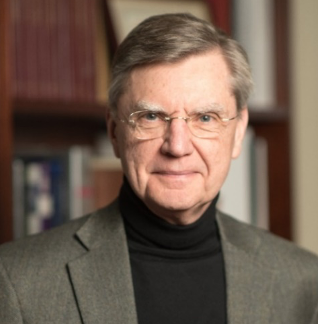Photogenerated Electron Spin Qubit Pairs in Molecular Materials for Quantum Information Applications
Presented by Prof. Michael R. Wasielewski
Abstract:
We will describe recent work from our laboratory that focuses on using photo-driven processes to generate entangled electron spins in molecular materials targeting applications in quantum information science. We will describe how ultrafast photogeneration of electron-hole pairs within covalent electron donor-acceptor systems results in two entangled spins having sufficiently long coherence times to perform logic gate operations and to teleport a prepared quantum state on a third spin to one of the spins comprising the entangled pair. We will also describe recent work using photogenerated entangled spin pairs to serve as a molecular electric field sensor. Finally, we will show how chirality-induced spin selectivity (CISS) strongly influences the spin dynamics of photogenerated electron-hole pairs in donor-chiral bridge-acceptor molecules. Exploiting CISS affords the possibility of using chiral molecular building blocks to control electron spin states for quantum information applications.
Bio:
Michael R. Wasielewski is the Clare Hamilton Hall Professor of Chemistry and Applied Physics at Northwestern University. He is also Director of the Center for Molecular Quantum Transduction, a US-DOE Energy Frontier Research Center, the Initiative for Quantum Information Research and Engineering, and the Trienens Institute for Sustainability and Energy at Northwestern. He received his B.S., M.S., and Ph.D. degrees from the University of Chicago and was a postdoctoral fellow at Columbia University. His research has resulted in over 800 publications and focuses on light-driven processes in molecules and materials, solar energy, quantum information science, molecular opto-electronics, ultrafast optical spectroscopy, and time-resolved electron paramagnetic resonance spectroscopy. He is member of the National Academy of Sciences and the American Academy of Arts and Sciences and is the recipient of numerous awards for his work.
Learn more about the Wasielewski Lab here!

